

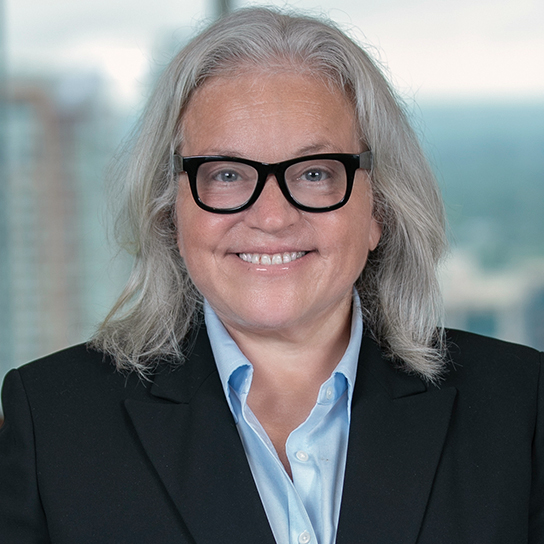 Randy Segal
Randy Segal
With 20 years of in-house general counsel experience, Randy Segal brings an individual perspective to every matter she handles, both as your outside counsel and as someone who has walked in your shoes. With a focus on satellite, wireless, drone, and technology transactions, Randy provides commercially practical solutions in industries where technological change is ever-present. Randy’s practice often involves multi-level chess games, where every move needs to be considered from a multitude of angles to be successful.
As a result, Randy’s practice is reflected in three segments. First, as co-leader of the Space and Satellite practice, Randy has handled many types of transactions, from day-to-day matters to the most complex international transactions for industry operators, investors, and technology providers. She has been involved in taking companies public, advising on acquisitions, divestitures, and complex cross-border joint ventures, as well as large satellite system development, deployments and funding.
Second, as an advisor to technology investors and their portfolio companies, Randy has advised on transactions focused on big data analytics, IT, wireless systems, spectrum licenses, environmental analytics, wireless proximity analysis, drone technology, terrestrial positioning, and other innovative technologies.
Third, Randy provides “strand of pearls” advice to global clients, working seamlessly with our international offices to develop familiar, comfortable and “right-sized” solutions. Randy’s extensive cross-border experience has resulted in an extensive tool-kit of resolutions for the most complex of legal regimes. Randy’s transactional and advisory experience is both deep and broad, working throughout North and South America, Europe, Asia and the Middle East and on the most complex of international programs and legal issues.
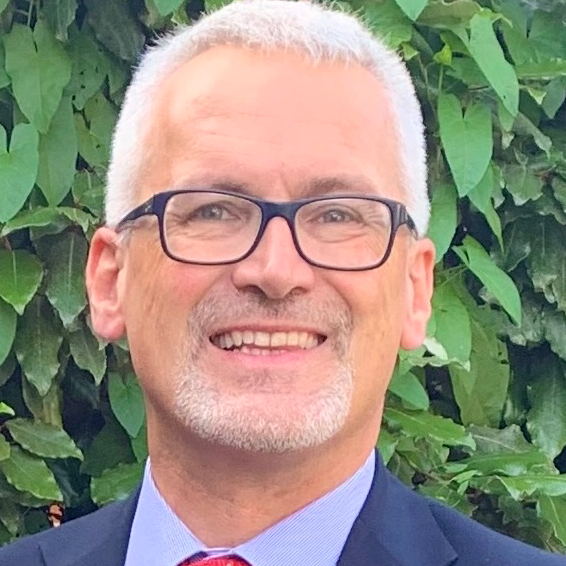 Dr. Tim Farrar
Dr. Tim Farrar
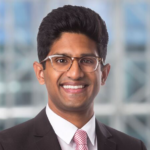 George John
George John
George John ensures regulations do not disrupt innovation and investment for established and emerging technologies particularly in the aerospace, telecommunications, sports, medical, and mobility industries.
Technologies empowering satellite connectivity, smartphone downloads, the monitoring of ball trajectory and speed or athlete biometrics at sporting events, real-time telehealth applications, and drone deliveries encounter U.S. and international regulation.
Operators of these and similar platforms regularly rely on George to navigate related legal, policy, and technical challenges. He advises clients on radiofrequency (RF) spectrum use, orbital debris mitigation, and remote sensing licensing while engaging the Federal Communications Commission (FCC), National Oceanic and Atmospheric Administration, national administrations outside the United States, and international standards bodies, including the International Telecommunication Union. Those interactions have helped him shape and streamline regulations on RF spectrum, the safety and sustainability of space, and Earth imagery; negotiate RF spectrum rights at international fora; and complete associated due diligence for venture-capital and private-equity investments.
Before joining Hogan Lovells, George served as in-house regulatory and transactional counsel for a pioneering nanosatellite company, where he secured satellite, earth station, and remote sensing licenses and negotiated satellite launch and insurance agreements. Other previous stops include the FCC’s International Bureau Satellite Division, where he tackled satellite and earth station licensing and rulemakings, and the Federal Aviation Administration’s Office of Chief Counsel, where he undertook commercial space launch, reentry, launch site operation, and other aviation regulation projects.
Outside of work, George actively mentors young lawyers and others interested in space, telecommunications, and technology.
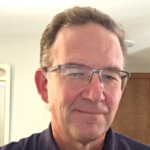 Karl Kensinger
Karl Kensinger
Karl A. Kensinger is the Chief of the Satellite Division of the Federal Communications Commission’s International Bureau. Mr. Kensinger’s experience and expertise covers a broad range of satellite policy and licensing matters, including licensing of small satellites and satellite constellations, international coordination of satellite networks, radio spectrum policy, and transfers of FCC licenses. He has been a primary FCC point of contact on orbital debris matters since 1995. Mr. Kensinger is a graduate of the University of Michigan Law School and the University of Chicago.
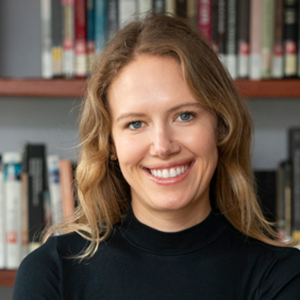 Dr. Whitney Lohmeyer
Dr. Whitney Lohmeyer
Whitney Lohmeyer is a leading satellite communications industry advisor, serves on the faculty at Olin College of Engineering and is a Research Affiliate at MIT in Aeronautics and Astronautics. At Olin, she directs the Olin Satellite + Spectrum Technology & Policy (OSSTP) Group – managing a team of more than twenty undergraduates who collaboratively contribute to the technical and regulatory field of satellite communications systems – and she also works closely with industry to advise on end-to-end system design, antenna systems, radiation tolerance and spectrum strategy.
Whitney is passionate about enabling affordable Internet access in order to improve agriculture, healthcare and education. As the first engineer hired at OneWeb, a company launching hundreds of low earth orbit communications satellites to provide global broadband and bridge the digital divide, she held a variety of roles both technical and policy-focused. In her role as a Systems Engineer, she designed the RF Link Budget, focusing on the LTE waveform and the user terminal antenna. In addition, she actively contributed to policy reform at the United States Federal Communications Commission (FCC) and United Nations (UN) International Telecommunications Union (ITU), and represented OneWeb on the U.S. Delegation to the 2015 World Radio Conference, the culmination of a three-year regulatory review cycle.
Since her time at OneWeb, she has advised more than twenty-five satellite companies on technical, financial, and regulatory related matters – including but not limited to the management and drafting of Experimental and Part 25 FCC Market Access Filings. Prior to joining the OneWeb team, she worked as a hardware engineer at Google, and spent time in technical roles at Inmarsat and NASA. Whitney received her Ph.D. in Aeronautics and Astronautics from MIT in 2015, and her M.S. in Aeronautics and Astronautics from MIT in 2013, both funded by a National Science Foundation (NSF) Graduate Research Fellowship. She earned her B.S. in Aerospace Engineering from NC State University in 2011, as the only female in her class of approximately ninety students, and now serves on the board of North Carolina State University’s Mechanical and Aerospace Engineering (MAE) Department. She has been invited to speak at a variety of events including New America, NC State’s 2018 MAE Commencement Ceremony, the UN Women’s Gender Equality and Mainstreaming (GEM) The Internet of Women: Challenge or Opportunity? and the UN’s and ITU’s Women’s Leadership Workshop on Empowering Women in Radiocommunications Negotiations.
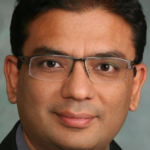 Ahsun Murad
Ahsun Murad
Ahsun Murad is the President and CEO of Optimal Satcom, which he co-founded as a spin-off from Lockheed Martin and Comsat in 2002. Over the last 18 years since its founding, Optimal Satcom has grown to support a large segment of the satellite industry with products and customized solutions that help its customers run their business – over 15 satellite operators, 20 of the largest satellite service providers, and major US Government DoD and civilian agencies use Optimal Satcom products and systems today. As a world expert in satellite communications technology, Mr. Murad advises satellite companies and governmental agencies on satellite system design, application of emerging technologies, and formulating policy decisions.
Mr. Murad has worked for over 25 years in various positions across the satellite communications industry. Immediately before founding Optimal Satcom, he held management positions at Lockheed Martin and COMSAT Laboratories. In these positions, he headed the development of products for transmission planning and satellite capacity management and was the lead system architect for a number of commercial SATCOM and MILSATCOM projects. Before joining COMSAT Laboratories, Mr. Murad worked at the NASA Center for Satellite and Hybrid Communications Networks where he was involved in research and development related to hybrid satellite-terrestrial mobile communications systems, and complex multi-satellite systems. Mr. Murad graduated from the Indian Institute of Technology, Delhi, India, with a Bachelor of Technology degree in Electrical Engineering. He holds a Master of Science degree in Electrical Engineering from the University of Maryland at College Park.